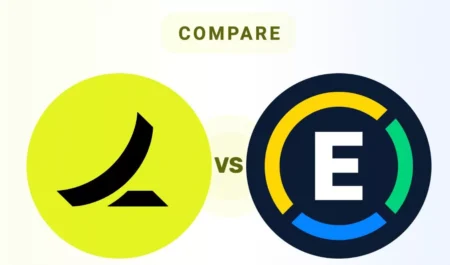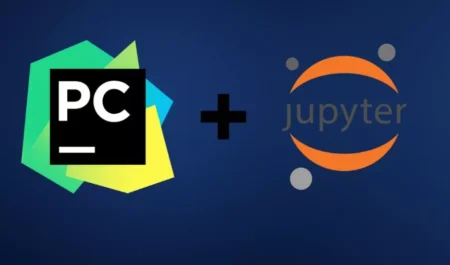6
In the enormous market for legal software solutions, each of which boasts to “simplify your life,” I have personally traveled through the myriad of options that are available. While it is true that some of these programs live up to their claims, it is also possible that others do not provide a smooth alignment with the particular requirements of your healthcare practice. It might be a challenging endeavor to figure out which ones are actually deserving of your time and money investment investments. While working in the legal industry, I had the opportunity to witness firsthand the revolutionary potential of software designed specifically for managing legal practices.
Your company will be able to handle client and case records, papers, appointments, calendars, deadlines, and bookkeeping in an effective manner thanks to this all-encompassing application, which not only streamlines daily operations but also becomes the backbone of your organization.
When I think back to the days when my team and I managed these essential components manually or through a variety of applications, I can speak to the fact that the implementation of an all-in-one legal software has dramatically transformed the way our company operates. Not only is the change about making things easier, but it is also about altering the overall operational picture in a more favorable direction.
Best Law Practice Management Software Comparison Table
It’s important to know right away that there is no such thing as the best tools for managing a law firm. The best program may be different for each company Before you look for legal software, you should think about what your business needs the most help with. For instance, if it’s hard for your law company to keep track of documents, look for software that does a great job of that. If billing is a weak spot, software that has all the tools needed to fix it will have the most effect.
| Feature | Clio | Filevine | SmartAdvocate | PracticePanther | CASEpeer |
|---|---|---|---|---|---|
| Target Audience | All firm sizes, diverse practice areas | All firm sizes, focus on collaboration and automation | Small to mid-sized firms, all practice areas | Solo practitioners, small firms, various practice areas | Solo practitioners, small firms, personal injury, family law |
| Pricing | Tiered plans based on user count, starting at $39/user/month | Tiered plans based on user count, starting at $49/user/month | Contact for quote | Tiered plans based on user count, starting at $49/user/month | Tiered plans based on user count, starting at $39/user/month |
| Key Features | Client intake, case management, time tracking, billing, reporting, integrations | Case management, collaboration tools, automation, document management, integrations | Client intake, case management, time tracking, billing, analytics, integrations | Client intake, case management, time tracking, billing, marketing tools, integrations | Case management, document management, communication tools, legal research tools, integrations |
| Strengths | User-friendly interface, extensive integrations, comprehensive feature set | Strong collaboration features, automation capabilities, focus on security | Customizable, affordable for small firms, good mobile app | Easy to use, marketing tools, good customer service | Affordable, strong document management, legal research tools |
| Weaknesses | Can be expensive for larger firms, some features require additional add-ons | Limited integrations compared to Clio, learning curve for complex features | Limited reporting capabilities, may not be suitable for larger firms | Limited collaboration features, may not be ideal for complex litigation | Limited practice area focus, may lack specific features for some firms |
Best Law Practice Management Software
A modern law firm needs solid software to keep track of all the different parts of its business. An office should not only be able to assign tasks and make sure they are done, but it should also be able to make sure they were done well. A lot of law firms use software to help them with this. But not every LPMS system is the same, and what works for your business might not work for your neighbor’s.
Clio
| Feature | Description |
|---|---|
| Time Tracking | Track billable hours with ease |
| Case Management | Organize cases efficiently |
| Document Management | Store and manage documents securely |
| Billing | Generate invoices and accept payments |
| Client Portal | Provide clients with secure access to case information |
| Visit Website |
There are many cloud-based platforms that are created for legal professionals, and I’ve had the opportunity to investigate a range of them. Each of these platforms has brought its own set of advantages to the table.
Clio, for example, stands out due to its user-friendly interface and extensive capabilities, which in turn make practice administration, time and invoicing, and client cooperation a pleasure for legal firms that are small to medium in size. Because of its streamlined user interface and extensive toolkit, it has become my go-to option.
The Good
- User-friendly interface
- Integrates with various third-party apps
- Robust mobile app for on-the-go access
The Bad
- Steeper learning curve for advanced features
- Limited customization options for reports
Filevine

| Feature | Description |
|---|---|
| Task Management | Assign tasks and track progress |
| Communication | Collaborate with team members and clients |
| Workflow Automation | Streamline repetitive tasks |
| Analytics | Gain insights into case and team performance |
| Document Automation | Automate document creation and filing |
In addition, there is Filevine, which is yet another cloud-based gem that has been of great use to me in consolidating my processes. The fact that it focuses on automating chores has proven to be really helpful for me, as it has enabled me to move cases forward in an effective manner. Filevine has proven to be a trustworthy partner for me in my legal attempts thanks to its intuitive user interface and excellent case management tools.
The Good
- Highly customizable workflows
- Excellent customer support
- Intuitive user interface
The Bad
- Initial setup can be time-consuming
- Integration options are somewhat limited
SmartAdvocate

| Feature | Description |
|---|---|
| Case Intake | Capture and manage new case information |
| Document Assembly | Create legal documents efficiently |
| Calendar | Schedule appointments and deadlines |
| Reporting | Generate custom reports for analysis |
| Contact Management | Organize client and contact information |
The all-in-one platform that SmartAdvocate offers, on the other hand, has brought about a significant transformation in the industry. The practice management tools, document automation, and legal billing are all seamlessly integrated, which not only makes the process more convenient but also makes it more cost-effective. The fact that it was so inexpensive and didn’t require much effort to set up made it an appealing option for me to consider.
The Good
- Comprehensive case management capabilities
- Powerful document assembly tools
- Customizable dashboards for quick insights
The Bad
- Interface could be more modern
- Learning curve for complex features
PracticePanther

| Feature | Description |
|---|---|
| Matter Management | Organize matters and cases effectively |
| Time Tracking | Log billable hours accurately |
| Invoicing | Create and send invoices seamlessly |
| Client Portal | Provide clients with access to case updates |
| Integrations | Connect with popular legal and business tools |
The devotion that PracticePanther has shown to managing legal practices, keeping track of time and billing, and communicating with clients has really pleased me. A reassuring feature of my experience has been the solid customer service, which has made navigating hard chores feel like second nature. The platform’s intuitive UI has made this experience feel like second nature.
The Good
- Easy to use with a clean interface
- Extensive list of integrations
- Responsive customer support team
The Bad
- Some advanced features may require additional training
- Limited customization options for reports
CASEpeer

| Feature | Description |
|---|---|
| Case Management | Track case details, contacts, and deadlines |
| Settlement Tracking | Monitor settlement negotiations |
| Document Management | Store and organize case-related documents |
| Task Management | Assign tasks and deadlines to team members |
| Time Tracking | Record billable hours effortlessly |
When it comes to the handling of legal cases, CASEpeer has proven to be a trustworthy partner. It provides me with everything I require, including the ability to manage documents, create calendars, and keep track of what matters. As a result of its user-friendly design and reasonable pricing, it has become an exceptionally simple option for my legal toolset.
The Good
- Focuses specifically on personal injury law
- Intuitive interface designed for legal professionals
- Streamlined workflow for PI cases
The Bad
- Less flexibility for firms practicing other areas of law
- Integration options are somewhat limited
Key Features to Look for in Law Practice Management Software
It’s important to look for law practice management software with features that make your firm’s operations run more smoothly, save time, and provide better customer service. Here are some important things to look for:
- Case Management: Strong case management skills are necessary to keep case files, papers, contacts, and other important data in order. Find software that lets you make and handle cases, keep track of due dates, store files safely, and work together with other people on your team.
- Time Tracking and Billing: Time tracking and billing tools that work well help you keep track of billable hours correctly and make bills quickly. Look for software that lets you keep track of the time you spend on tasks, the money you spend, the rates you charge, and the different forms of invoices you can make.
- Calendar and Scheduling: The calendar and scheduling tools help you keep track of important dates, meetings, and deadlines. Look for software that works with popular calendar apps, makes it easy to make meetings, sends clients and staff reminders, and lets you share calendars so that your team can work together.
- Document Management: You can safely organize, store, and find papers when you have good document management tools. Look for software that lets you store documents, keep track of versions, use document templates, put documents together, and connect to document management systems.
- Communication with Clients: Having good features for communicating with clients helps you stay in touch with them and give them great service. Look for software that has secure client portals, email integration, messaging, and automated tools for communicating with clients, like reminders for appointments and progress reports.
- Manage tasks and work flows: Features for managing tasks and work flows make it easier to streamline processes, assign jobs, and keep track of progress. Look for software that lets you set goals, make workflows, automate routine tasks, give tasks to team members, and keep track of when tasks are finished.
- Checking for Conflicts: Being able to check for conflicts is important for staying responsible and avoiding conflicts of interest. Look for software that lets you do quick and thorough searches for conflicts, find possible conflicts based on information about clients and matters, and keep a central library of conflicts.
- Integration with Legal Research Tools: If your company is integrated with legal research tools like Westlaw or LexisNexis, it can do more research and be more efficient. Look for software that works well with legal research databases. This way, you can use your practice management system to get to important case law, statutes, regulations, and legal commentary.
Questions and Answers
What software do large law firms use?
Clio Manage, which is a cloud-based practice management software, helps to centralize and streamline the process of running your firm, managing cases, and interacting with customers. Clio is a technological tool that is even more valuable for lawyers because it integrates with a wide variety of other applications.
What is CRM for lawyers?
Legal client relationship management (CRM) software helps law firms grow their businesses by handling tasks like taking on new clients, scheduling and following up with clients, keeping track of income, and more. To put it simply, legal CRM software helps turn possible new clients into retained clients during the client intake process.
You Might Be Interested In










Leave a Reply